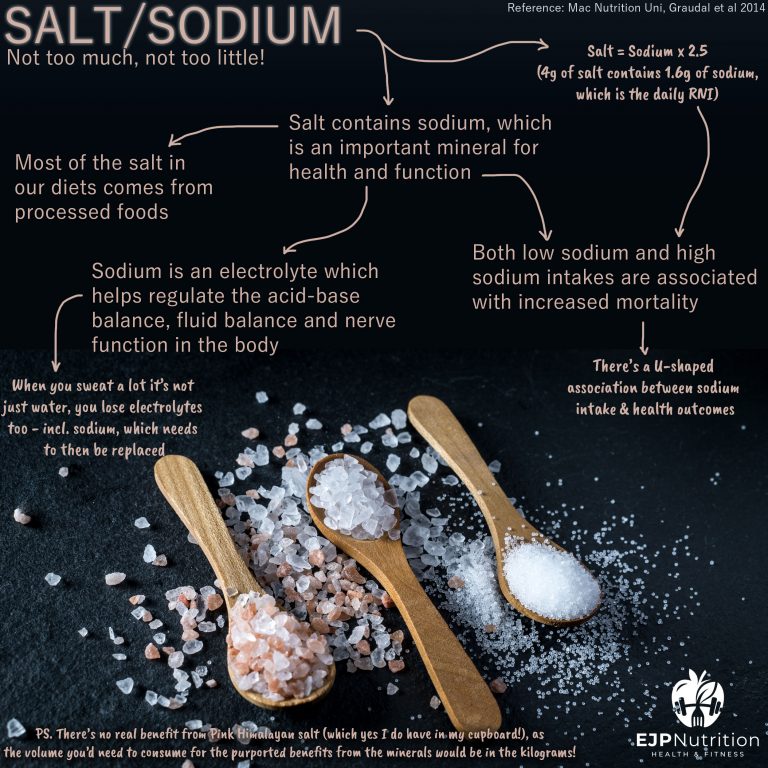They aren’t the same thing, so shouldn’t be used interchangeable, even if they often are! Sodium is a mineral, which we require for optimal function and health. Salt is the chemical compound sodium chloride (NaCl), and where we primarily get our sodium from. The RNI for sodium is 1.6g. That’s equivalent to 4g of salt, which we work out by multiplying it by 2.5.
Health
Sodium plays an important role in the fluid balance of our body. It also helps to regulate the acid-base balance, with our pH levels being tightly regulated, and with nerve function.
There’s a U-shape curve relating to risk and the association with sodium intake. Having too much is bad (as with most things in life!), but it’s also bad to not have enough. We want the middle ground, moderation again! The WHO recommend less than 5g of salt per day.
Blood pressure
What about salt and hypertension? Hypertension is chronically high blood pressure (BP), and a risk factor for CVD. If you eat a lot of salt it can increase your BP, but this is generally an acute reaction. Meaning it is directly from the intake, but not that it’s causing a prolonged (chronic) effect.
One study increased salt intakes from 4g/d to 15g/d for 6 days and there were no significant increases to BP in normotensive individuals. Another review found reduced sodium in non-acutely ill adults reduced resting systolic pressure by 3.39 mm Hg and resting diastolic blood pressure by 1.54 mm Hg. While statistically significant if you look at those numbers would you say that’s significant in real-life?
Overall Diet
Maybe a more pertinent question is where the salt in people’s diets is coming from? For most people it’s from processed food. So is it the salt, or having a less balanced diet or unhealthy lifestyle which causes hypertension? The DASH diet (Dietary Approaches to Stop Hypertension) or Mediterranean diet show how looking at an overall pattern of eating, rather than narrowing it down to a single mineral/nutrient, is potentially more productive.
Extra Note
Other lifestyle factors that contribute to hypertension are smoking, high alcohol intakes, and not doing any exercise. Potassium levels are also a factor, which I’ll talk about in a future post.
Another point is that not all people respond the same to sodium. One review estimated that about 50-60 % of hypertensives are salt sensitive, so for them salt intake has a bigger effect on their BP.
References: Mac Nutrition Uni, Graudal et al 2014, Foo et al 1998, Yancy 2018, Aburto et al 2013, Rust & Ekmekcioglu 2011
(Reposted from Instagram)


